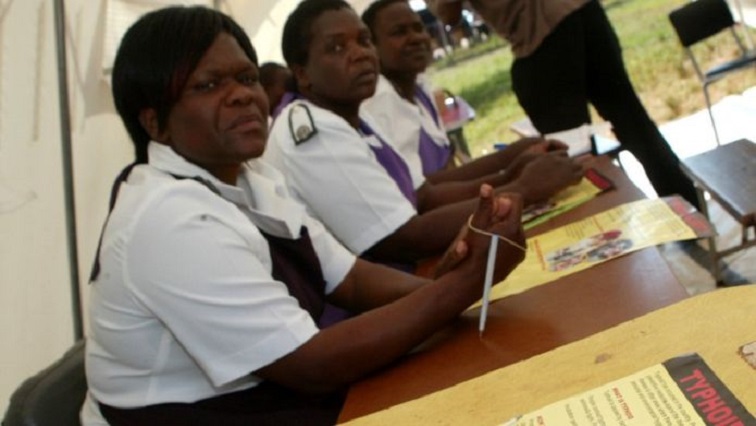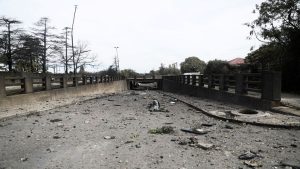Zimbabwe said it had sacked 16,000 striking nurses as the new government seeks to keep a lid on labour unrest in the build-up to the first elections since the fall of Robert Mugabe.
The nurses walked out on Monday over unpaid allowances and other issues, leaving hospitals understaffed. The action came days after junior doctors wrapped up a month-long walkout over pay and working conditions.
Vice President Constantino Chiwenga accused the nurses of staging a “politically motivated” walkout and said they would be replaced by retired and unemployed staff. The nurses’ union told its members to stay calm as it considered its response.
The Zimbabwe Nurses Association (ZINA) said it had given its employer, the Health Services Board, until 1400 GMT on Thursday to reverse the mass dismissal or face legal action.
The nurses are digging in and with good reason too. Vice-President Chiwenga has no legal powers to unilaterally fire nurses. Labour Law 101. Their employment contracts subsist. Here's the latest statement from the Zimbabwe Nurses' Association 👇 pic.twitter.com/Ql2bTVqich
— Brezh Malaba (@BrezhMalaba) April 18, 2018
Chiwenga, the retired army general who led a de facto military coup against Mugabe in November, said ZINA had rejected a $17 million offer to clear wage arrears.
ZINA said it was open to talks with the government and that its grievances had not yet been resolved.
“The government now regards this lack of remorse as politically motivated, and thus going beyond concerns of conditions of services and worker welfare,” Chiwenga said late on Tuesday.
He did not say which political group he thought was behind the strike. Mugabe regularly accused opposition groups of trying to undermine his government by encouraging the public sector strikes that punctuated his 37 years in power.
Nurses are not just nurses
Thinking that midwives, renal nurses, theatre and recovery nurses can be replaced by inexperienced people who have been sitting at home shows a low level of comprehension of national issues. #BringBackOurNurses— Dr² Hillary Musarurwa, PhD (@HillaryMusarurw) April 19, 2018
The Zimbabwe Teachers Union, which itself has threatened to go on strike next month over poor pay, said the government should rescind its “inhuman and unilateral decision.” A doctors and lawyers union said the government decision was illegal.
President Emmerson Mnangagwa, who replaced Mugabe in November, will stand in elections set for July against a revitalised opposition Movement for Democratic Change party led by 40-year-old Nelson Chamisa.
Chiwenga thinks he can fire 15,000 nurses via a press statement without notice or even a letter of dismissal and replace them with only 2,000 unemployed and retired nurses to staff every hospital in the country. It can’t. We won’t be fooled. RT if you agree. #BringBackOurNurses
— Doug Coltart ✊🏼🇿🇼 (@DougColtart) April 18, 2018
Mnangagwa has promised to revitalise the southern African country’s economy after decades of severe mismanagement. Cash shortages mean banks are forced to limit withdrawals, unemployment remains above 80 percent and the government still struggles to pay workers on time.






